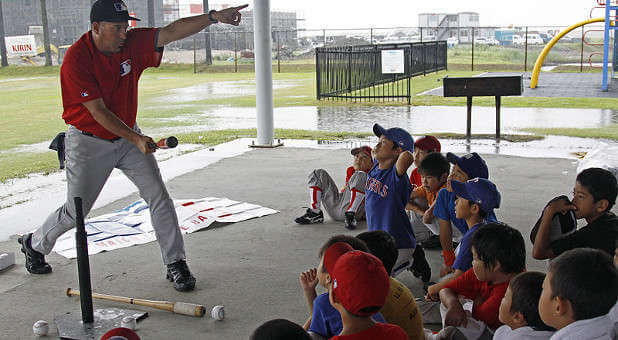How do you approach your child’s coach, or otherwise deal with a problem involving the coach?
Sometimes the problem is just between the one child and the coach, other times it involves several athletes. The major concern seems to be how to discuss this problem with the coach without creating problems for the child, such as retribution from the coach.
Hopefully your child’s coach held a preseason meeting with all the team athletes and their parents. During this meeting, the coach should have discussed his or her coaching philosophy and coaching methods, among other things. This information should help you understand why your child’s coaches are doing many of the things they are doing.
Occasionally, however, issues or questions may arise during the season that you might feel need to be addressed by the coach. The most common issue seems to be the perception that a child is not getting enough playing time. Other issues raised include the coaches playing their own, less skilled children ahead of other more skilled children on the team, coaches who curse and are otherwise verbally abusive to the children, coaches who cannot or do not teach the skills needed to play the sport, and coaches who make promises to kids but fail to follow through. The Sport Parent (Human Kinetics Publishers, 1994) also lists as possible problems: being subjected to too much pressure, receiving only criticism from the coach for mistakes rather than encouragement, being made fun of by peers with no response from the coach, and being injured and not properly attended to.
What should you do when one or more of these (or other) problems seem to be occurring?
First, you need to determine if there is a real problem. Your child may be the best indicator of this. Does your child dread going to practices or games? Has your child talked about dropping out without expressing any particular reason? Does your child frequently come home from practices unhappy? You need to talk to your child and try to determine what the actual problem seems to be from their perspective.
Remember, they may be reluctant to talk about it because they are afraid of what might happen if you go and talk to the coach. You should also try to attend few practices and games to observe to determine what is actually going on. The problem might not be with the coach.
Second, if you believe that there is a problem with the coach, you should talk to him or her. If the problem involves more than one athlete, the parents of the other athletes should be included in the discussion. Make an appointment to meet with the coach, but not at practice or a game. Explain the problem to the coach and ask for his or her perspective on the situation. Listen carefully to the coach’s response.
Discuss any differences between your perspective and the coach’s viewpoint. Try to come to an agreement about how the problem will be resolved. If you and the coach are unable to resolve the problem, you may have to take the problem to the league or organization’s administrator. In any of these meetings, you must control your emotions and maintain a positive approach.
Remember, you are trying to improve the youth sports experience for your child, and the rest of the team too.
All Pro Dad is Family First’s innovative and unique program for every father. Their aim is to interlock the hearts of the fathers with their children and as a byproduct the hearts of the children with their dads. At AllProDad.com, dads in any stage of fatherhood can find helpful resources to aid in their parenting. Resources include: daily emails, blogs, Top 10 Lists, articles, printable tools, videos and eBooks. From AllProDad.com fathers can join the highly engaged All Pro Dad social media communities on Facebook, Twitter, YouTube and Instagram.
© 2012 All Pro Dad. All Rights Reserved. Family First, All Pro Dad, iMOM, and Family Minute with Mark Merrill are registered trademarks.
















































